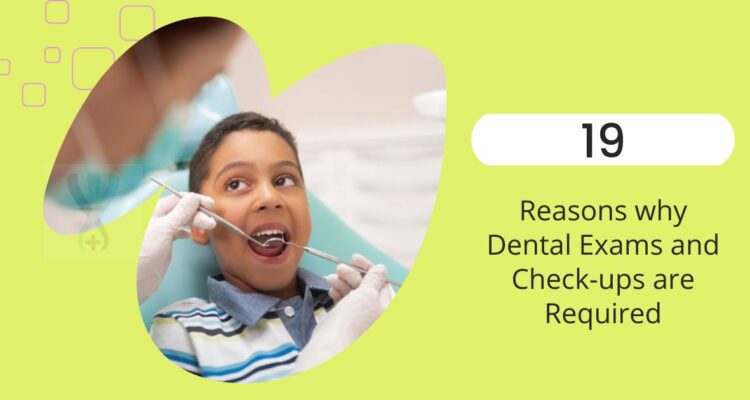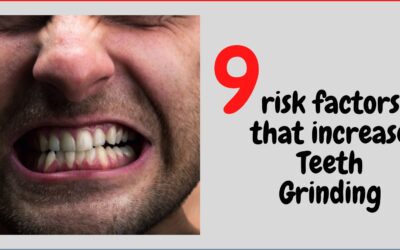A dental examination and checkup is a routine dental appointment where a dentist examines a patient’s teeth, gums, and other oral tissues to evaluate their overall oral health. Here are 19 reasons why dental exams and check-ups are important, along with explanations against each point.
- Detecting early signs of tooth decay: Dental exams allow dentists to check for tooth decay and cavities. These can be treated before they become more serious and require more extensive treatment.
- Preventing and treating gum disease: Gum disease is a common problem that can lead to tooth loss if left untreated. Regular check-ups can help diagnose gum disease early and prevent it from progressing.
- Removing plaque and tartar build-up: Even with regular brushing and flossing, plaque and tartar can build up on teeth and lead to decay and gum disease. Regular cleanings can remove this buildup and prevent any further oral problems.
- Diagnosing oral cancer early: Oral cancer is a serious and potentially life-threatening condition, but it can often be treated successfully if diagnosed early. Regular check-ups allow dentists to check for signs of oral cancer.
- Identifying oral health issues before they become major problems: Regular dental exams can help diagnose minor issues before they become more serious, which can save patients time, money, and discomfort.
- Providing preventative care to maintain good oral health: Regular check-ups allow dentists to provide preventative care, such as fluoride treatments and sealants. These preventive dentistry measures help to maintain good oral health.
- Identifying and treating cavities: Dental exams allow dentists to identify and treat cavities before they become larger problems. Such early detection of cavities can save patients from more extensive and expensive treatments down the line.
- Addressing dental sensitivity and pain: Dental exams can help identify the cause of dental sensitivity and pain, and provide treatment to alleviate these symptoms.
- Evaluating the health of your gums and soft tissues in the mouth: Dental exams allow dentists to evaluate the health of the gums and other soft tissues in the mouth, and provide appropriate treatment if needed.
- Educating patients on good oral hygiene practices: Dental exams provide an opportunity for patients to learn about good oral hygiene practices from their dentists. This can help them maintain healthy teeth and gums.
- Evaluating the fit and condition of dental restorations: Dental exams allow dentists to evaluate the fit and condition of dental restorations like fillings, crowns, bridges, etc, and provide treatment or replacement if needed.
- Assessing the health of the jaw and bite alignment: Dental exams can help evaluate the health of the jaw and the alignment of the bite, which can impact overall oral health.
- Evaluating the need for orthodontic treatment: Dental exams can help identify the need for orthodontic treatment, and ensure that treatment is started at the right time.
- Identifying the presence of wisdom teeth and evaluating their need for extraction: Dental exams allow dentists to evaluate the presence of wisdom teeth and determine if they need to be extracted to prevent problems.
- Reviewing your medical history to identify any health issues that may impact your oral health: Dental exams provide an opportunity for dentists to review a patient’s medical history and identify any health issues that may impact their oral health.
- Evaluating the dentures and other dental prostheses: Dental exams allow dentists to evaluate the fit and condition of dentures and other dental prostheses, and provide treatment or replacement if needed.
- Identifying signs of teeth grinding or clenching: Dental exams can help identify signs of teeth grinding or clenching, and provide treatment to alleviate these symptoms and prevent further damage.
- Identifying jaw joint problems: Dental exams can help identify if there are any jaw joint pain, any clicks while opening or closing the mouth.
- Providing advice on diet and nutrition for optimal oral health: Dental exams provide an opportunity for dentists to provide advice on diet and nutrition that can positively impact your oral health. For example, your dentist might check your food habits and ask you to reduce consumption of junk food and sugary food to avoid tooth decay.




